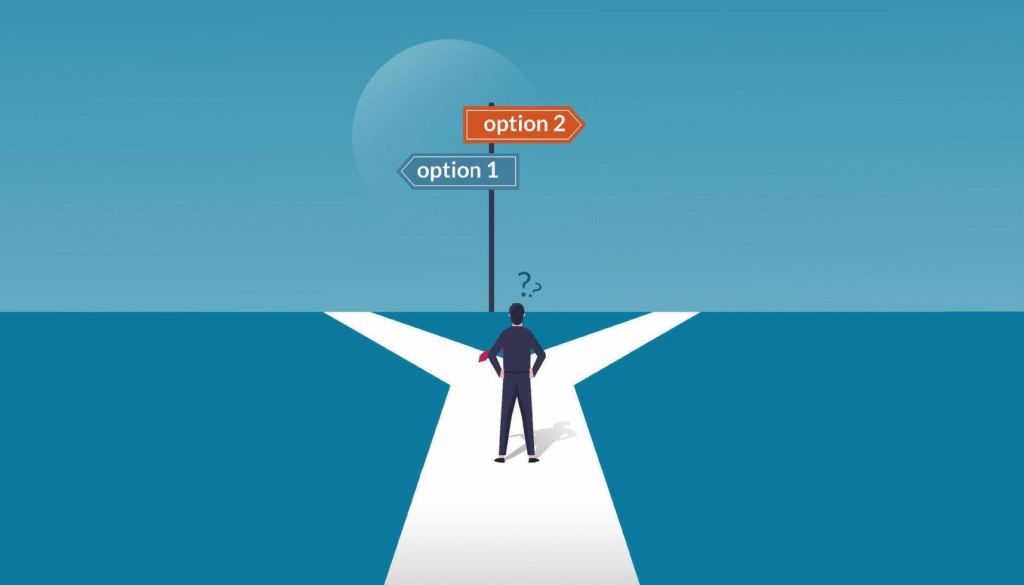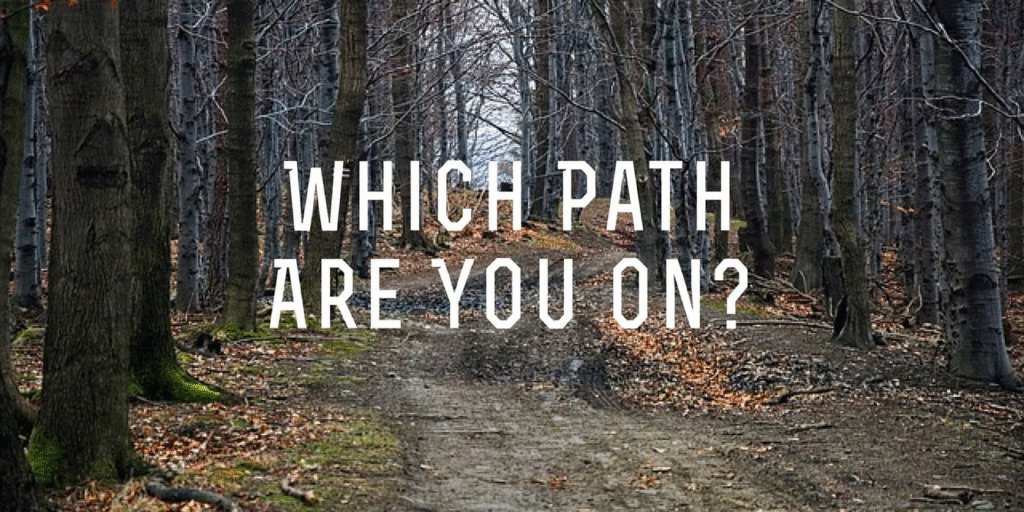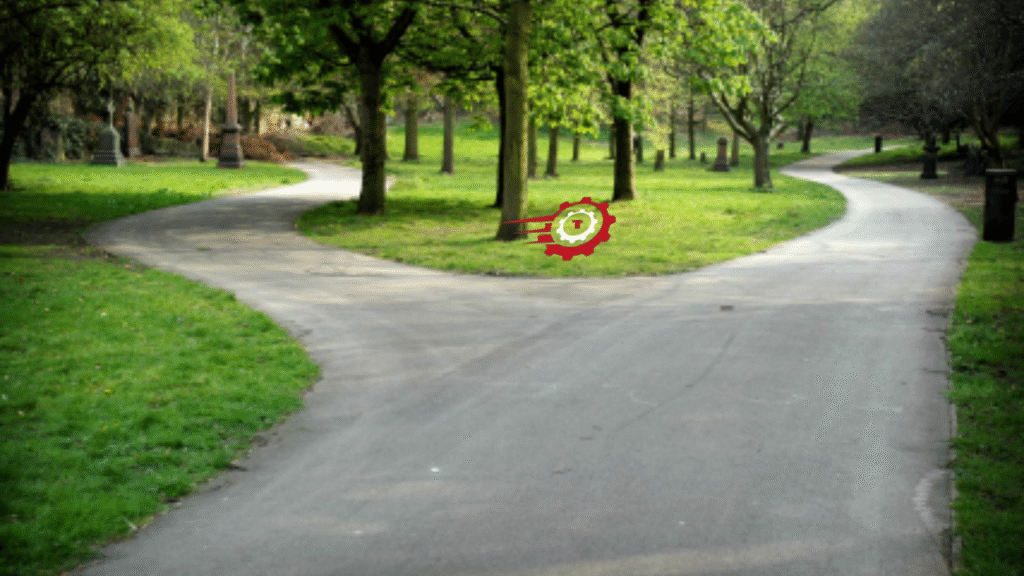When life presents us with two choices, it can feel overwhelming. The phrase “when given two paths, choose” is more than a quote—it’s a reminder that the decisions we make shape our journey. Choosing the right path isn’t about being perfect; it’s about listening to your heart, your instincts, and trusting yourself along the way.
Why Do We Have to Choose Between Two Paths?
Life is full of decisions—big and small. From choosing what to study, which job to take, where to live, or even which relationship to invest in, we constantly find ourselves at crossroads. These decisions are like two paths in a forest, each offering different views, challenges, and rewards.
We often have to choose because resources like time, energy, and focus are limited. We can’t walk both roads at the same time. So we evaluate our options and pick one. Making a decision is how we move forward in life. Without it, we remain stuck.
Sometimes, the pressure to make the “right” choice can feel intense. But the truth is, there’s no way to be 100% sure about how any decision will turn out. What matters is making the best decision you can with what you know now.
What Does “When Given Two Paths Choose” Really Mean?
The phrase “when given two paths choose” has deep meaning. It’s not just about decision-making; it’s about choosing the direction that aligns with your values, feelings, and goals. It encourages you to pause and reflect before jumping in.
In the United States and across the world, this phrase resonates with people of all ages. Why? Because everyone faces moments of choice. The phrase urges us to not just make the “safe” or “popular” decision, but the one that feels right deep down.
Often associated with Robert Frost’s famous poem The Road Not Taken, this idea encourages us to be brave enough to walk our own path—even if it’s unfamiliar or unpopular.
How to Make the Right Choice When You’re Unsure
Uncertainty is part of life, especially when making important decisions. You may feel stuck between two seemingly equal options. In those moments, these strategies can help guide you:

Listen to Your Gut Feeling
Your instincts are powerful. That strange feeling in your stomach when something doesn’t feel right? That’s your intuition speaking. Many people ignore it, thinking it’s not logical enough. But gut feelings are based on deep knowledge and experience stored in your subconscious. If one path makes you feel calm and confident—even if it’s harder—it might be the right one.
Think About the Future
Project yourself a few years into the future. Ask yourself, “If I choose Path A, where will I be in five years? How will I feel?” Do the same for Path B. Which future feels more fulfilling? Which aligns more with who you want to become? Thinking long-term often brings clarity to present-day decisions.
Talk to Someone You Trust
Don’t underestimate the power of a good conversation. Talk to someone who knows you well—a parent, teacher, mentor, or friend. Sometimes, just saying your thoughts out loud can help you understand what you truly want. And other times, they might offer insights you hadn’t considered.
Real-Life Example: Two Paths, One Big Decision
Let’s say you’re a high school senior who got accepted to two universities. One is close to home, affordable, and comfortable. The other is in another state, more expensive, but offers a unique program you’ve always dreamed about.
This is your two-path moment.
You talk with your family, do your research, and reflect on what you truly want. Staying home feels safe, but the out-of-state school excites you. Even though it’s scary, you choose the second option. Years later, that choice leads to amazing friendships, a career you love, and personal growth you never expected.
This is the power of choosing the path that feels right—even when it’s not the easiest.
Tips to Stay Calm When You Have to Choose
Making a big decision can bring stress, anxiety, and overthinking. But there are ways to calm your mind:
- Take deep breaths to clear your thoughts.
- Write down pros and cons for each choice. Seeing things on paper helps.
- Sleep on it—your brain solves problems even while you rest.
- Avoid rushing into choices unless absolutely necessary.
- Remind yourself that very few decisions are final. Most paths allow room to adjust and change.
Choosing calmly leads to better, more thoughtful outcomes.
Mistakes Happen — And That’s Okay
No one makes the perfect decision every time. Life is about learning, not perfection. Sometimes, even after choosing what felt like the right path, things don’t go as planned. And that’s completely okay.

No Path Is Perfect
Every path has its own challenges. Even the “right” one may come with struggles. That doesn’t mean you chose wrong—it just means life is real and complex. What matters is how you respond and grow.
Learn and Move Forward
Every decision teaches you something. If something doesn’t work out, reflect on it. Ask: “What did I learn? How can I apply this next time?” Mistakes are part of the journey toward wisdom. In fact, some of the best life lessons come from the wrong turn.
What If Both Paths Look Good?
Sometimes, you’re lucky enough to face two great choices. That can be even more confusing! If both options seem equally good, choose the one that aligns most with your personal values and long-term goals. And trust—there is no wrong answer. You’ll grow no matter what.
Thoughts: Trust Yourself
At the end of the day, you are the one walking the path. So it must feel right to you. People will have opinions. Some may disagree. But this is your life, and only you know what feels right in your heart.
Trusting yourself doesn’t mean you’ll never mess up. It means you believe in your ability to figure things out, learn, and grow. Confidence builds with each decision you make—win or lose.
The Bottom Line
When given two paths, choose the one that feels right—not the one that’s easiest or most popular, but the one that speaks to your heart. Decisions shape your journey, and you’re allowed to choose based on what matters to you.
You don’t need to have everything figured out. Just take one step, then another. Listen to your gut, talk things through, and trust that whatever you choose, you’ll make it meaningful.

